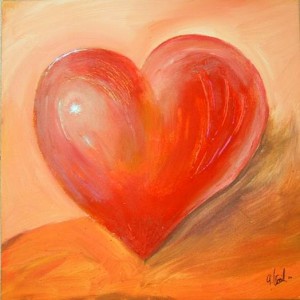by Preeti Madhusudhan
We sat side by side, squished together like pickle in a glass jar: the elderly Afghani at one end, tall and majestic; the blonde middle-aged Bosnian in the middle and the fairly-young Indian low, down in the cushion-less spot. We were at the gym run by the police and the city council for the community youth, where our kids practised their Taekwondo, aiming methodical kicks towards the middle of the high-ceilinged gym, their voices shrill, rising in a collective echo. The news channels, social media, radio, the parents picking their children after school, the women who sat side by side sweating at one end of the gym this evening – everyone was full of the morning news.
The Aussie summer had gone berserk and the skies were bellowing out their bowels it seemed. Having escaped a hailstorm by a mere couple of seconds, I was sitting barefoot, icky wetness cladding my annoyance. My rolled-up wrung-out pants still dripped on the frayed wooden floor.
I was trying hard to extricate myself out of the mess that I had gotten the conversation into. As I had entered the gym shaking the water off the umbrella and my soggy shoes, the low cushion-less spot beside Azemina was the only available seat in the huge gym. “Nice,” I thought, as I lowered myself on to the hammock-like middle of the couch.
I liked Azemina. She had a funny accent, somewhere between the English accents affected by Hollywood actors playing German and Russian characters. All “ze”, ja” and rolling “r”s and soft “t”. Her blonde hair was cut sharp till her shoulders and hung in a crisp line, straight-framing a delicate face with the Caucasian porcelain skin, with eyes and a nose that had something Asian and ancient about them. And they always roused a suspicion in me that the blonde was fake. She was a single mother who had migrated to Australia at the time of conflicts in Bosnia and Serbia. Her Nikola was born here. She always asked the customary “How are you?”, but with a sincerity that made me stop in my tracks even if we just passed by in the free-shuttle stop or in the mall, or on way to the school. It made me want to look at her eyes. The sides of her eyes seemed to crinkle with concern or genuine relief based on whatever I blurted out. You know how sometimes you associate people with a song, a sound? If I could assign a song to everyone I know, I think Azemina would be The Beatles’ “Here comes the Sun”, as she had an undercurrent of melancholy, just like the song. Her smile, her blonde hair all seemed fake, all except the crinkle, the deep crow feet of worry and concern.
Azemina introduced me to the woman next to her. She was the mother of the kids’ Taekwondo instructor. The adrenalin from the exhilarating run in the rain pumped enthusiasm at the beginning of the conversation. I began well with the,
“Oh! Rohullah is such a good boy.”
“The kids love him!”
“He does such a good job with them, their interest has gone up so much since he joined…”
She nodded her head vigorously through all this, interspersing it with “Yus, he is,” “He good boy,” “very quiet, at home, no…,”which she completed with lots of charades which we understood to mean “no unnecessary yakking, talking”…
She went on to talk some more, and now it was our turn to nod our heads vigorously, and smile, even as we didn’t understand a lot. There was a fair lot of what sounded like “makhoum” or “puhkkth” and what we gathered were Afghani words for medals and tournaments. She was probably talking about her son. This just elicited “ah”s and smiles from us, though we didn’t know what we were smiling at. I would get a side-glance at Azemina to see if she got it, she would just purse her thin lips, give an almost imperceptible shrug of her delicate shoulders and smile, one that reached her crow feet. Nope, she had no clue either.
“You , hindoosthon? Ni?”
“Yes!” more head nodding and smiles followed and again we stopped there.
Then she started again, her long kohl-lined eyes lighting up, her scarf-clad head bobbing up and down in a gentle rhythm in accordance to her enthusiasm. Large tear-drop-like solid gold earrings dangled from her ears, weighing down the lobes.
“Me, seven childrrun…” she declared, her firm chin up and proud.
“Seven childrrren?”said Azemina, as we both glanced down pointedly at the elderly woman’s flat tummy.
The elderly woman practically blushed and purred at the compliment.
“Rohullah….” She pointed to our kids’ instructor, “he last”.
She then went on to talk, or rather gesture, of which of her sons was a “dokthaar” or her daughter, (“doether”) who was a teacher in Afghanistan. A shadow of something flickered for a brief second across her long dark eyes as she mentioned this child of hers.
She asked me then, “You how many…” with an indulgent smile.
I pointed at my son kicking at a rubber pad with ferocity.
“He good,” she declared after observing him for a few seconds. I flushed with motherly pride. “One?” she asked with a head tilt and twinkle in her eyes.
I blushed, and tried to change the topic. I asked them then if they had seen the morning news flash about the gunman who was holding an unknown number of people hostage in a café in the Sydney downtown. I immediately bit my tongue. It felt like some kind of transgression. The Afghani woman’s headscarf and unknown details of Azemina’s history suddenly clambered on to my mind, too late, too urgent.
The effect seemed almost immediate. The Afghani seemed to pull her scarf closer around her head, and Azemina seemed to shift in her seat.
“Ye, Ye”, Azemina responded, sliding forward in her seat, coming closer to grasp my hand, as if we weren’t already close enough.
“Therribul,” she wailed. The blue veins below her dark eyes stood out clearer than usual, stark against her pale skin. The crow feet and crinkles seemed deeper today. I hadn’t noticed until then. “I got a headache since morning,” she went on, her palms turned upward, making invisible arcs to her side, her shoulders now in a permanent shrug. “Why, why ztheese peepul, do ztheese, I don’t know, it give me headache, I been watchin the telly since noon when my neighbour, she call me, see Azemina, you heard zthees?”
The Afghani woman just nodded a couple of times, her eyes elsewhere, her smile gone.
I wondered how to bring the conversation back to the mindless, customary politeness of before.
“You know, I am a Bosnian? My country, always war. Once the americans come, only war.” She spat out the word “American,” her eyebrows up in exasperation.
“I no like the Americans. We have in our country, the conservatives, the katholiks and the Muslims,” she said glancing at the Afghani, who was still gently nodding, now listening with deep concentration, her eyes impassive.
“But all together before,” she linked her fingers, “my family, so many marriages between these.” She shrugged her shoulder yet again. “But now, nothing there, no jobs, these Americans, they come and too much war. Maybe 1999, 2000?” she seemed to be mentally calculating, “when I leave and come to Austrraalia. Before… my brother he live in Serbia, so I go there…” Though she was pretty composed all through, she struggled for words; whether because of a natural discomfiture or her sparse English vocabulary, I can’t say.
“There then, already no jobs, no food and then zees Americans come, their planes, and they start to drop bombs, for 15 days.” She stopped. The rain beat against the walls and the roof, relentless, the children still stomped the floor, kicked, yelled their “Ace” at the start and stop of their Taekwondo Poomsae patterns. I was suddenly very aware that my toe nails looked dull, brown and obviously uncared for.
Azemina began again.
“15 days, we stay in….how you say?” she gesticulated, her left eyebrow still high, she kept pointing to the floor.
“Underground?” I offered.
“Ye, ye, underground. All the time bomb.” Her eyes were now glazed, she now stopped.
An awkward quiet settled in now. I didn’t want to speak.
“I worry, I think of all that now, since morning, that I came here to be away from all that, and here also it starts. No war in India right? I always think, India peaceful, no war, no fightin, never I hear anything like that, right?” she continued, her eyes were so full of hope, her crow feet deeper ridged than ever. I looked across at the Afghani. She probably know about Kashmir, for she was shaking her head.
I started, decades of headlines rushing up in my mind, of all the wars with our neighbours, the troubles in the bordering states. I was still dumbstruck, not knowing how to compile in a few words the decades of suffering in the valley, the displacement of millions of pundits to warmer climes in search of shelter and peace, the millions of quietly-suffering Muslims caught in the fray between terms like moderate and extremists.
The elder woman now began in a deep yet lullaby like tone, “My husband, Rohullah dad…he beeg puleece ofcer in Afghanistan…” She lowered her voice a fraction. “But…” she gestured with her finger at her throat. It was just her English that failed her, not her nerves, as she continued. “Now, here, I no home, Rohullah….” she showed out three fingers and gestured out a small child with her hand, referring to her son being three years old when she fled the country.“ Afghanistan, home, husband… here, nothing,” she stated as a matter of fact. She sat her head held erect, her eyes proud.
I then had no heart to talk of the India of lost human battles. I saw only the India in their eyes, an India where a young girl grew up, protected in the safety it offered, the India where despite the immense conflicts that still ran as an undercurrent, there are no air raids that last 15 days, from where a three–year-old child doesn’t need to escape to avoid a cut throat.
Pic : http://www.flickr.com/photos/desibeee/







Beautifully narrated and undercurrent conveyed subtly!
Wonderful as usual!